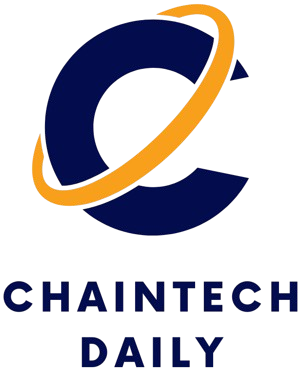
On the eve of International Women’s Day, we had a conversation with Marta Belcher, a pioneer in blockchain law. Marta Belcher is a cryptocurrency and civil liberties attorney who is president of the Filecoin Foundation as well as its sister nonprofit, Filecoin Foundation for the Decentralized Web. She is also general counsel and head of policy at Protocol Labs, and also serves on the Board of Directors of Creative Commons and as president of the Board of the Blockchain Association. She has been a leader in crypto policy, including testifying in U.S. Congress and other legislative bodies around the world.
Crypto.News: Marta, please correct me if I’m wrong, the first project under your leadership that turned heads was No Worries Now, an organization helping teens with life-threatening illnesses. For me, that seems like something completely different from the blockchain industry. However, did this experience have a lasting impact on what you are doing now?
Marta Belcher: Wow, that’s a deep cut! Yes, while I was in college, I ran a national nonprofit that helped teens with life-threatening illnesses, both through hosting events and programs for them and also through policy advocacy. Through working with these teens, I learned that many of their illnesses (like leukaemia, for example) could actually be cured by bone marrow transplants. But many of them died because they couldn’t find a bone marrow match. I also learned that umbilical cord blood — the blood that’s left over in the umbilical cord after a baby is born — can be used instead of bone marrow for these transplants. But it turns out that cord blood is almost always thrown away as medical waste instead of being preserved to use for transplants. It’s absolutely insane when you think about it.
So, in college, I became an advocate for public umbilical cord blood banking so that umbilical cord blood could be preserved and used to save lives instead of being thrown away. In addition to doing policy work through No Worries Now, I did policy work for the National Marrow Donor Program (advocating for funding for a national cord blood bank) and worked for a California Assemblymember who successfully enacted a bill to create California’s public umbilical cord blood banking system.
So that was my first foray into the world of technology policy. And I think, for many people, technology policy feels quite abstract — like, it’s hard to visualize the impact it will have. But I was also working directly with the teens whose lives were being saved through these transplants, so it really solidified in my mind the real impact that technology policy can have. And after those experiences, it was an easy decision to pursue technology law and policy as a career.
CN: How did you learn about Bitcoin or blockchain? How quickly did you realize that blockchain is important for you? Did you become interested in tech law before or after you became interested in blockchain?
MB: I started my career as a technology attorney interested in protecting civil liberties and the public interest. I was initially a technology litigator at a law firm, and I had the privilege of representing public interest organizations like the Electronic Frontier Foundation (EFF), Center for Democracy & Technology, and Project Gutenberg, as well as large companies.
My first foray into the blockchain space was in 2015, helping some of the early blockchain companies think about how to protect the industry from patent trolls, based on a paper I had written for EFF called “Hacking the Patent System.” I was immediately drawn to the technology because I saw its potential to protect privacy and import the civil liberties benefits of cash into the online world. So I was hooked and started focusing on blockchain.
I had amazing clients and got to work on super interesting things — like writing the first blockchain-transferable software license, defending the first patent litigation brought against a blockchain company, and writing the Blockchain Association’s first amicus brief. I also spent a lot of time in those early years speaking to policymakers about blockchain (often getting to explain the technology to them for the first time!)
And then I started working with Protocol Labs (PL) during the early years of Filecoin development, initially representing them as outside counsel, then becoming PL’s outside general counsel, then leaving my law firm to join as full-time general counsel. I was so excited by the vision of Filecoin — to use blockchain technology to build an alternative to Big Tech that puts people in control of their own data. It was such an amazing opportunity to be part of building this technology that I think is foundational for the next generation of the Web.
CN: You occupy so many roles–from the president of Filecoin Foundation to general counsel of Protocol Labs to board member of Creative Commons and president of the board of the Blockchain Association. I want to ask two questions about this.
First, how do you manage your time to work with so many organizations?
MB: I will probably regret saying this out loud, but I have a strategy of “work-life integration” instead of “work-life balance” (which works for me but certainly wouldn’t work for everyone, so I’m not advocating for others to adopt it!) For me, at this moment in time, I’m sort of enveloped by this mission of using technology to protect civil liberties, and many of the people I’m surrounded by are working on adjacent things, and so it’s just easy to live and breathe it.
CN: The second question is, what makes an organization valuable and attractive to you so that you are willing to join it? What is the common thread for the projects you are working on?
MB: All of the work I’m doing across these organizations is related to this broader mission of using technology to protect civil liberties. So, even though I have multiple hats, I feel like everything I do is really actually just one job.
CN: You won a Women’s Entrepreneurship Day Organization award for your pioneering role in blockchain law. There is conflicting data on the gender-based wage gap in web3. Pantera Capital reports there is a “reverse” gap, meaning that women are paid better than men. Others say that women are paid much less than men. More than that, we don’t see many women-led companies in web3. What are your observations on gender disproportions, and what are the reasons behind them? What are the challenges and benefits of being a woman in crypto?
MB: Honestly, there are so many amazing women who are leaders in crypto right now. As just one example, all three of the major crypto industry groups had women as their founding executive directors. I’m sort of surprised when people talk about crypto being male-dominated because that isn’t my subjective experience of being in the crypto space. If you ask me to think about leaders in crypto, the people who jump to mind for me are mostly women. But I realize that’s subjective!
CN: I’ve noticed that the Filecoin Foundation team is mostly women. Do you think that companies with a woman majority are different from male-dominant companies in the way they act?
MB: That’s right – Filecoin Foundation’s leadership team is more than half women, our staff is approximately half women, and our board is almost all women. But that wasn’t intentional – we just looked for the best talent, and that’s who we found. As I said before, there are a lot of amazing women in crypto!


